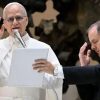The U.S. Supreme Court is now at the center of a deeply divisive legal battle that could reshape how public schools across the country address religion, curriculum, and parental rights. In Mahmoud v. Taylor, justices are being asked to rule on whether parents have a constitutional right to remove their children from elementary school lessons that include LGBTQ-related content, which the parents say conflicts with their religious beliefs.
A Clash Between Parental Rights and School Authority
The case originated in Montgomery County, Maryland, a large and diverse school district just outside Washington, D.C., where the school board introduced LGBTQ-inclusive books into the elementary school curriculum as part of a broader effort to promote inclusivity and reflect the diversity of its 160,000 students. Titles included Prince & Knight, a story about a prince falling in love with a knight, My Rainbow, about a transgender child and her mother, and Pride Puppy!, an alphabet book featuring scenes from a Pride parade.
According to the parents who filed suit, the inclusion of these books violates their First Amendment right to the free exercise of religion because their children are being exposed to content that contradicts their deeply held religious beliefs. “They are in conflict with our faith,” said Grace Morrison, a mother who is part of the lawsuit. “These are topics that I’m just not ready to start on down the road with her,” she added, referring to her 10-year-old daughter with Down syndrome who was enrolled in a general education class that included the books.
Initially, Montgomery County Public Schools allowed parents to opt their children out of lessons that included this material. However, just before the 2023–2024 school year, the school board reversed that policy without notice. According to the parents’ legal filing, “Without explanation, it announced that beginning with the 2023–2024 school year, ‘[s]tudents and families may not choose to opt out’ and will not be informed when ‘books are read.’”
Colten Stanberry, an attorney with the Becket Fund for Religious Liberty, is representing the parents in the case. “We’re just saying if the school board is going to make that decision, let us have the chance to leave the classroom,” Stanberry told Fox News Digital. “And for my parent clients, they’re saying let us be the parents. Keep us involved in the school decision-making process. Don’t try to cut us out.”
Legal Arguments and Prior Court Rulings
The parents argue that the school district’s decision violates the Free Exercise Clause of the First Amendment. They cite the 1972 Supreme Court case Wisconsin v. Yoder, in which the Court ruled that Amish parents could withdraw their children from public school after the eighth grade for religious reasons. Although Stanberry acknowledged that this current case is narrower, he said, “This is a right parents have had from the Supreme Court for over 50 years.”
Lower courts did not agree. A federal district court ruled against the parents, saying they failed to prove that the new policy “burdens their religious exercise.” The U.S. Court of Appeals for the Fourth Circuit upheld that decision in a 2–1 ruling. The appeals court reasoned that reading books with LGBTQ characters did not force students to change their beliefs or behavior and therefore did not violate their religious rights.
The school board’s legal brief echoed this logic. “Teachers are not required to use any of the storybooks in any given lesson,” it said. “They were not provided any associated mandatory discussion points, classroom activities, or assignments.” The brief also emphasized that the books were “offered as an option for literature circles, book clubs, or reading groups; or used for read-alouds.”
Concerns About Managing Opt-Outs
School board officials have said they ended the opt-out policy because the number of requests became difficult to manage and disruptive to regular classroom activities. They expressed concern over how to handle supervision for students who opted out, how long they would be removed from class, and how teachers could provide appropriate alternative assignments without affecting instruction for the rest of the class.
Yale Law Professor Justin Driver, who co-authored a friend-of-the-court brief siding with the school board, stated, “Just because some people may be uneasy with this sort of material doesn’t mean that the federal judiciary should be commandeering local control over public schools.”
Driver and other legal scholars worry that if the Supreme Court sides with the parents, it could open the door to more widespread opt-out requests for a wide range of subjects. “Do you have all the parents list out all the things that they believe at the start of the year, so you know and can tailor what you teach?” asked education professor Morgan Polikoff of the University of Southern California.
Still, supporters of the parents’ lawsuit say that the requests were focused and limited to specific books with LGBTQ themes. “Our parents aren’t asking for an LGBTQ-free classroom,” Stanberry said. “They are not saying the books can’t be on the shelves. They are specifically challenging instruction.”
Impact on Students and Teachers
The school board noted that the inclusive books were meant to promote respect and understanding among students. In one case, a student named Nick spoke at a public school board meeting, saying, “We have rights, too. We deserve to have books in our school that teach people about LGBTQ and stuff. It’s not touching you, hurting you physically. I don’t know why you hate it so much.”
However, some parents said the books introduced unfamiliar language and ideas their children were not ready to process. The school district eventually pulled two books, Pride Puppy! and My Rainbow, after determining that the content required more explicit instruction than originally planned.
If the Court rules in favor of the parents, it could force schools to notify families in advance of all potentially controversial material, create custom assignments, and manage students who opt out without stigmatizing them. Douglas Laycock, a constitutional law scholar, said, “If you have large numbers of people demanding alternative assignments for lots of different parts of the curriculum, at some point it’s going to become unworkable.”
But Laycock and others believe that allowing opt-outs in specific, predictable areas like gender and sexuality is possible. “A lot of school districts are, in fact, already doing what the parents are asking for here,” Stanberry added.
A Decision with National Consequences
The Supreme Court, which now has a conservative majority, agreed to hear the case in January and is expected to issue a decision by June. The ruling could have sweeping consequences not only for LGBTQ-inclusive curriculum, but also for how schools respond to religious objections across the country.
“If the justices side with the parents,” said Stanberry, “it means they affirm the right of families to be active participants in the values their children are taught in school.”
As the nation awaits the decision, one question stands out: should curriculum be guided by the beliefs of local communities, or does a pluralistic society require schools to expose children to a wide range of perspectives, even over the objections of some families? The Supreme Court’s ruling may provide an answer that defines American education for years to come.








